Dylan Lorimer was stoked.
The 29-year-old just finished the longest ride of his life, covering 123 miles and 3,268 feet of climbing, going from his home in Salt Lake City, Utah to his family vacation cabin in Malad City, Idaho. And he managed to hang with his whippet-ish, “hard-core cyclist” brother-in-law, averaging 18.5 mph the whole time—a huge victory for the self-described “big guy” at 265 pounds who’s only been riding on the road for about a year.
So he did what any proud rider in 2020 would do: posted about it on social media. On July 4, he logged onto Reddit’s bicycling page, where he sees “guys post up their cool rides all the time,” and published this post:

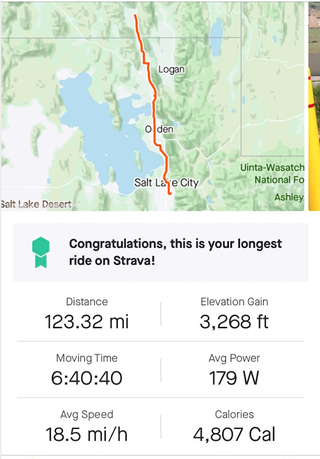
Amid the threads of users congratulating him for a job well done, it didn’t take long for the skeptics to call BS on Lorimer, saying that a man of his size couldn’t possibly keep the pedals turning at such a quick clip.
Forgive me, but I don’t believe you. Not trying to be a troll or anything, but I call a fib. Edit: I know, feel free to downvote me but you guys know you have never seen anyone close to that kind of shape ride at that kind of clip at even half that distance. I call bullshit.
I agree with you. That is a little bit too good to be true. With those statistics, he could train and would be a a pro. Was his bike a e-bike? For someone untrained 30km/h average at 200km? Highly unlikely.
He’s either huge or lying. There’s no other possibility. That’s a lot of weight, and I doubt anyone could pull that extra weight along at that kind of a pace without most of the weight being muscle mass.
The commentary flamed on for hours as the doubters debated the veracity of the big rider’s proud post.
Lorimer was the victim, in part, of what can be the ugly side of our highly competitive sport, according to sports psychologist Marshall Mintz.
“Competitive folks are very driven and demanding, but if it tips too far, it can become harsh, judgmental, and intolerant,” Mintz, a consulting sports psychologist for Atlantic Health System’s Atlantic Sports Health and managing partner of Springfield Psychological Associates, told Bicycling. “It pushes some people toward perfectionism where they are never good enough. The way they manage those feelings is to be critical and harsh of others.”
Lorimer never saw it coming.
“I was super surprised,” he said. “I’m a relative newb, but I’ve been riding consistently. This was purely an endurance ride. It’s not like I was throwing down huge watts. I was shocked that everyone was so up in arms.”
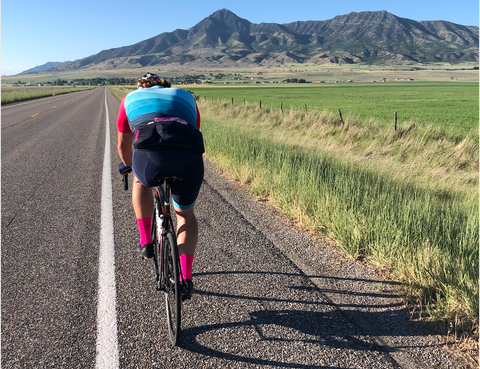
To quell the noisy naysayers, Lorimer followed up with another post clarifying some details of his big day out.
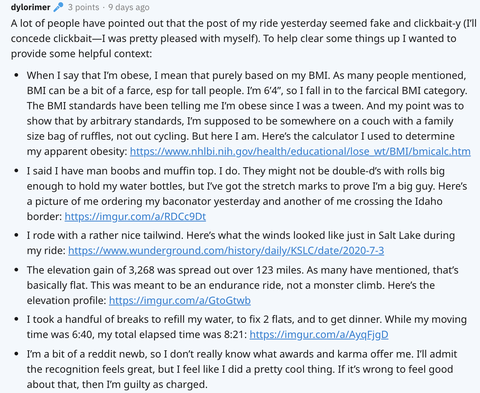
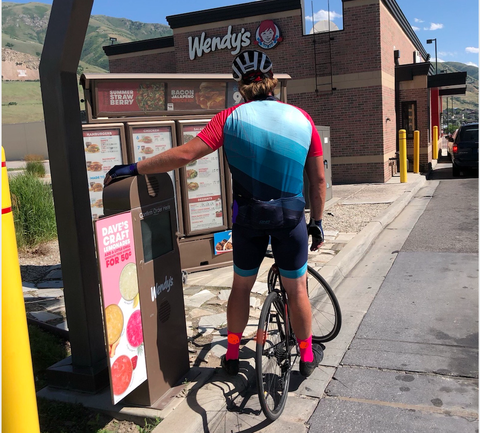
As the weekend wore on, Lorimer was heartened by fellow riders, especially ones just like himself, defending his accomplishment. “It was nice to see the showing of ‘big guy solidarity,’” he said, as many other larger-sized riders posted their own experiences:
I weigh 250, and I do speeds higher than this all the time. Someone said [Lorimer] responded [and said] he is 6’4″ … which ironically is the same height as me. Bigger guys put out this kind of average power ALL the time. I have done 100 milers at 20 and even 21 average. Of course I was riding with a club of 10 or more. 3k vert is nothing over 100 miles. I have averaged 17mph on 50 mile hill routes with 5000k of vertical… and I suck in hills. That’s 3-4 times the vertical gain per mile of this guys ride. I love hills, but I suck at them. This dude is just a big guy.
I personally weigh 250 lbs, weight often fluctuates from 250 to 260. I regularly ride on club rides with an average speed of 20-21, sometimes even 22. I like to do it on my cross bike and even my touring bike. We big guys can get away with it because we produce a lot of power. A couple years ago we even did a 100 with an average speed of 21mph. We had a group of 10-12 very strong riders. Even a dozen years ago when I weighed as much as 290, I could do a solo 100 with a 16.5. I’ve ridden 140 miles across Indiana in a day, 200 miles across Michigan in a day. I do not race. One of my favorite trios was 360 miles from Michigan to PA in under 48 hours. Started at 1 p.m., road to midnight doing 120, bivied, did 140, got up the next morning and kicked off the last 80 before noon. And I wasn’t even in a hurry. It was casual.
It’s the belly—streamlines you and makes it less effort. I know because I’m also 270 pounds and commute at similar speeds.
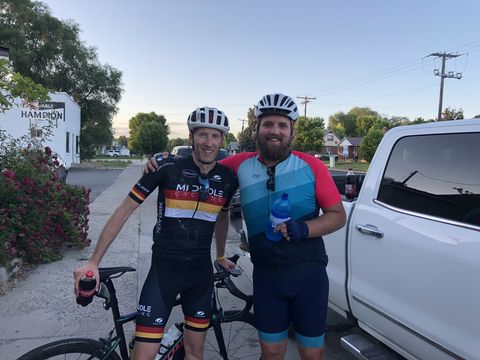
In reality, aerodynamics isn’t really the favorable factor here, but physics is definitely on the side of cyclists of a larger size. That’s why it is absolutely possible to crush it as a cyclist carrying even 100 more pounds than the skinnier riders in the bunch.
The biggest forces you have to overcome on your bike are rolling resistance (which includes the friction of your tires against the ground, as well as chain friction on your gears), air resistance, and gravity—and the latter two are the main barriers to speed. On flat roads with minimal wind (or a helpful tailwind like Lorimer and his brother-in-law had), the majority of the power you produce—and large, strong riders can often generate lots of watts—is helping to propel you down the road, said Hunter Allen, CEO of Peaks Coaching Group, and author or Training and Racing with a Power Meter.
“I met a man at a book signing in Charleston, South Carolina, where it’s level flat who was about 6’5″, 300 pounds. … We did a crazy 60 mile ride the next day averaging 25 to 26 mph. That guy may not go to Mt. Mitchell and kick anyone’s butt anytime soon. But he can sit in the peloton at 270 watts just fine,” Allen said.
Which was Lorimer’s original point: you can be a kick-ass cyclist without being a stereotypically slender cyclist.
“The real statement I was trying to make was you don’t have to be a stick to be a cyclist. Looking at me, you wouldn’t expect that I could and would do what I did today,” Lorimer said. “A year ago I certainly wouldn’t have.”
That sense of accomplishment is one of the things he says he really loves about cycling. Another is the inner confidence it’s given him to ignore the funny looks (or condescending Internet comments) he may get because of his size.
“It may sound corny, but cycling has taught me some really powerful life lessons,” he said. “Near the end of a century ride I had done, I looked like death, and there was this woman at a gas station who kind of smirked at me as I went by. But she didn’t know I had just ridden my bike 95 miles. Cycling’s taught me to have that internal dialogue that nobody knows where I’ve come from literally and physically, so it doesn’t matter what they think. I’ll just keep on riding my bike.”
Source: Read Full Article
